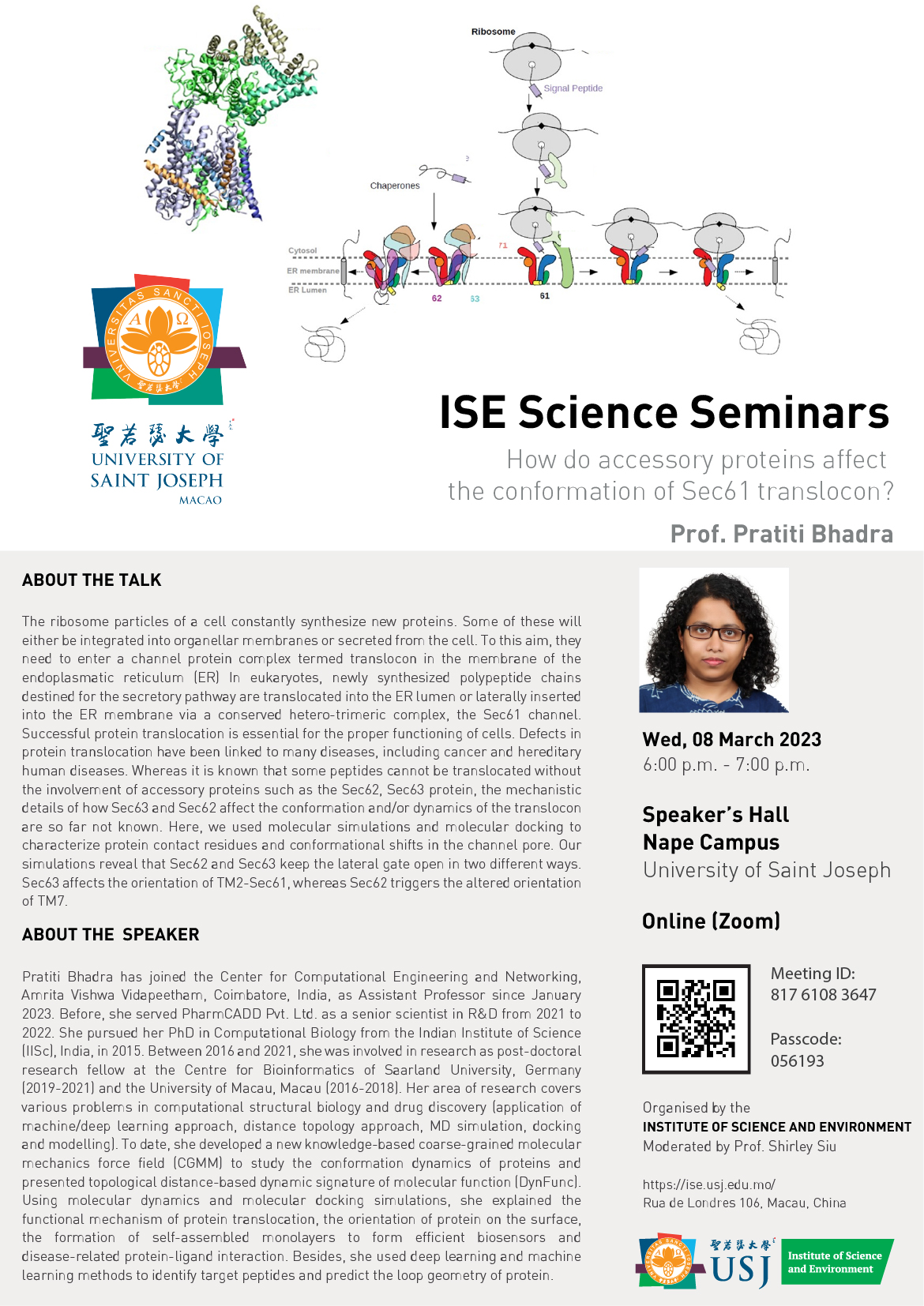ISE Science Seminar | How do accessory proteins affect the conformation of Sec61 translocon?

ISE Science Seminar | How do accessory proteins affect the conformation of Sec61 translocon?
08
Mar
The Institute of Science and Environment’s Science Seminar “How do accessory proteins affect the conformation of Sec61 translocon?” will be held on March 8.
ABOUT THE TALK:
Earth is a dynamic planet. So far it is the only planet we know that has life, liquid water and plate tectonics. These three features are probably linked in ways we yet have to fully comprehend. However, one of the consequences of living on an active dynamic planet is the natural hazards to which we are exposed, such as earthquakes and tsunamis. In this talk, I will start by explaining what plate tectonics is and explore some of its consequences, with particular emphasis on the seismicity and tsunami hazard of the Portuguese cost and South China. These regions have had some historical events and understanding them can help us to prepare and avoid future catastrophes.
ABOUT THE SPEAKER:
Pratiti Bhadra
Assistant Professor, Amrita Vishwa Vidyapeetham, India
Pratiti Bhadra has joined the Center for Computational Engineering and Networking, Amrita Vishwa Vidapeetham, Coimbatore, India, as Assistant Professor since January 2023. Before, she served PharmCADD Pvt. Ltd. as a senior scientist in R&D from 2021 to 2022. She pursued her PhD in Computational Biology from the Indian Institute of Science (IISc), India, in 2015. Between 2016 and 2021, she was involved in research as post-doctoral research fellow at the Centre for Bioinformatics of Saarland University, Germany (2019-2021) and the University of Macau, Macau (2016-2018). Her area of research covers various problems in computational structural biology and drug discovery (application of machine/deep learning approach, distance topology approach, MD simulation, docking and modelling). To date, she developed a new knowledge-based coarse-grained molecular mechanics force field (CGMM) to study the conformation dynamics of proteins and presented topological distance-based dynamic signature of molecular function (DynFunc). Using molecular dynamics and molecular docking simulations, she explained the functional mechanism of protein translocation, the orientation of protein on the surface, the formation of self-assembled monolayers to form efficient biosensors and disease-related protein-ligand interaction. Besides, she used deep learning and machine learning methods to identify target peptides and predict the loop geometry of protein. She is the author/co-author of more than 15 peer-reviewed journal. Her research works were published in reputed journals, namely Comp. Biol. Med.; J.Proteome Res.; Prot. Struc. Func. and Bio.; Sci. Rep.; J. Phy. Chem. C; Langmuir; Mol. Ther. Nuc. Aci.; Front. imm; Plos. Comp. Bio.; Biochem. J; IJMS, BBA-Biomembranes and Molecules.
Details:
Date: Wednesday, 8 March 2023
Time: 6:00 p.m. – 7:00 p.m (Macau)
Mode: Face-to-Face or Online (Zoom)
Location: Speakers Hall, Nape Campus
Organised by: Institute of Science and Environment (ISE)
Moderated by: Shirley Siu (ISE)
Join Zoom Meeting
https://us06web.zoom.us/j/81761083647?pwd=cHdpbTRzSk5TYW5LVXRWcVE3Uk5xdz09
Meeting ID: 817 6108 3647
Passcode: 056193
*Free event, open to the general public
*Sessions will be conducted in English










